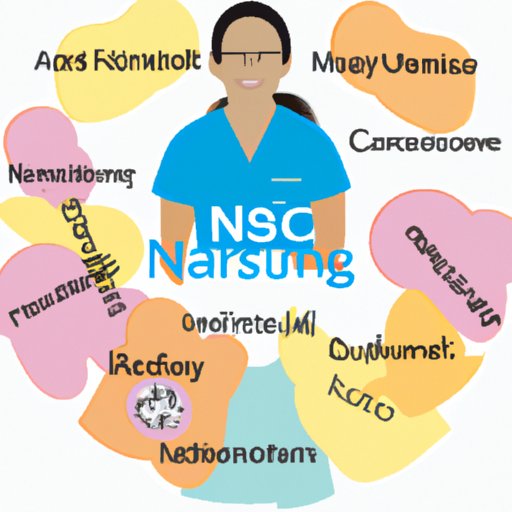Introduction
A Neonatal Intensive Care Unit (NICU) nurse is responsible for providing specialized care to premature and critically ill infants in a hospital setting. They play an integral role in the health and well-being of newborns, as they are often the first line of defense against illness and injury. With the right education, training and experience, anyone can become a NICU nurse, although it is not an easy task. In this article, we will explore the steps needed to become a NICU nurse, their role, the challenges they may face and how to best support them.
Education and Training Requirements
The first step to becoming a NICU nurse is obtaining the necessary education and training. Prospective NICU nurses should begin preparing in high school by taking classes in math, science and English. Additionally, students should consider participating in volunteer or paid positions in healthcare settings to gain valuable experience that will help them stand out during the application process.
After high school, aspiring NICU nurses must complete an accredited nursing program at a college or university. Nursing programs typically require two to four years of study, depending on the chosen degree level. During their studies, students learn about various medical conditions and treatments, as well as develop clinical skills such as patient assessment, diagnosis, and treatment planning. Once they have completed their degree, they must pass the NCLEX-RN exam to become licensed Registered Nurses.
In addition to their RN license, NICU nurses must obtain certification in neonatal resuscitation. This certification is offered through the American Heart Association and covers topics such as cardiopulmonary resuscitation (CPR), airway management and pharmacology.

Role of a NICU Nurse
NICU nurses provide specialized care to premature and critically ill infants in a hospital setting. They are responsible for monitoring vital signs, administering medications, and providing comfort and support to families. They also collaborate with other healthcare professionals such as doctors, nutritionists, and social workers to ensure that their patients receive the best possible care.
NICU nurses are often the first line of defense against infection and injury. They are responsible for recognizing warning signs of potential problems and intervening quickly to prevent further complications. They must also be knowledgeable about the latest treatments and technologies available to treat their patients.
NICU nurses are also responsible for educating parents and family members about their baby’s condition and providing emotional support during difficult times. They often act as a liaison between the family and the medical team, helping to ensure that everyone is informed and on the same page.

Challenges of Working in the NICU
Working in the NICU can be both rewarding and challenging. NICU nurses must be able to handle the stress of working in a high-pressure environment while providing compassionate care to their patients and their families. The long hours and emotionally draining situations can lead to burnout and compassion fatigue. It is important for NICU nurses to recognize their own limitations and take time for self-care to avoid burnout.
Professional Development Opportunities
There are many opportunities for professional development for NICU nurses. Continuing education courses are available to keep up with the latest research and trends in neonatal care. Networking with colleagues and attending conferences can also help NICU nurses stay current on the latest advancements in the field.
Impact a NICU Nurse Can Have
NICU nurses have the potential to make a huge impact on the lives of their patients. By providing quality care and offering support to families, NICU nurses can save lives and provide comfort in difficult times. They can also offer guidance and advice to parents and families, helping them to better understand and cope with their baby’s condition.
Support Systems Available
NICU nurses are not alone in their work. There are many support systems available to help them succeed. Colleagues and supervisors can provide advice and assistance when needed. There are also organizations such as the National Association of Neonatal Nurses (NANN) that offer resources, educational opportunities, and networking events.
Conclusion
Becoming a NICU nurse is a challenging but rewarding career path. Prospective NICU nurses must obtain the necessary education and training, which includes completing an accredited nursing program and passing the NCLEX-RN exam. They must also be prepared to handle the stress of working in a high-pressure environment and be knowledgeable about the latest treatments and technologies available to care for their patients. Professional development opportunities such as continuing education courses, networking, and attending conferences can help NICU nurses stay current on the latest advancements in the field. Finally, there are support systems available to help NICU nurses succeed in their work. With dedication and hard work, NICU nurses can make a lasting impact on the lives of their patients and their families.
(Note: Is this article not meeting your expectations? Do you have knowledge or insights to share? Unlock new opportunities and expand your reach by joining our authors team. Click Registration to join us and share your expertise with our readers.)
